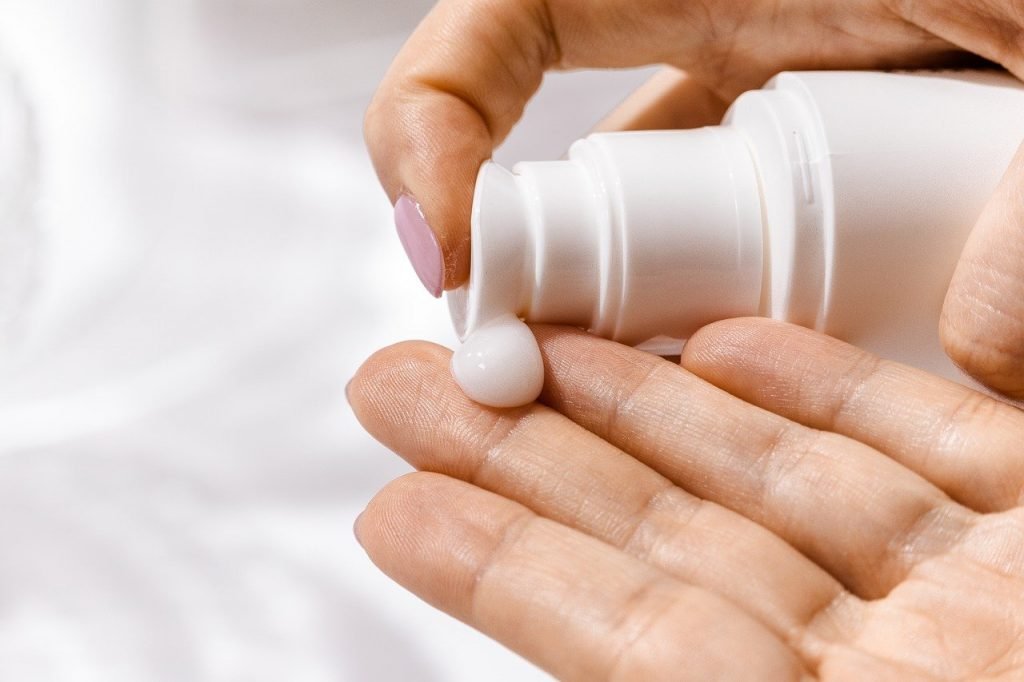Don’t be fooled – sunscreen isn’t just for the beach! It’s important to protect your skin from the sun’s harmful rays even if you’re simply doing a bit of gardening. And that means protecting all your exposed skin. Your face, neck, and arms still need protection even if the rest of you is covered up!
Is Sunscreen Needed Around The Yard?
The short answer to this subtitle is a resounding YES! In as little as 20 minutes, the sun’s ultraviolet radiation can do damage. If you’re extremely fair-skinned, it could be even faster.
The sun’s rays are good for us – they help our bodies produce Vitamin D. And they can lift our spirits, too. But the downsides can be devastating.
Most seriously, exposure to the sun can lead to skin cancer. And it’s not one, but three, varieties of skin cancer that could result. Basal cell and squamous cell skin cancers are common. Melanoma can also develop if you experience common blistering sunburns.
Even if you’re spared from the carcinogenic effects of exposure, you could still face dry, wrinkled skin from overexposure to the sun.
In short – take good care of yourself and your family! It pays off in the long run.
Terms To Know
When you’re choosing sunscreen or sunblock, you’ll see a lot of vocabulary bandied about. Some of it is useful, but some is meaningless. Let’s look at what you should know – and how much it matters.
UVA
The sun gives off two types of harmful ultraviolet light. “Ultraviolet” means it’s beyond violet on the color spectrum. And it’s invisible to the naked eye. But it still reaches the earth – and our bodies.
These rays penetrate deep into the skin. They help give the tan that appears quickly.
UVA rays cause some cancers. They also lead to your skin aging faster than it should.
UVB
The second type of ultraviolet light from the sun is dubbed “UVB.” These rays can provide a delayed tan, but they’re also responsible for sunburns.
UVB rays are responsible for a broader range of cancers.
Broad Spectrum
It’s important to pick a sunscreen that’s marked “broad spectrum.” This means it helps block both UVA and UVB rays. Don’t fall for the trap that one type of ray is more dangerous than the other. The potential negative effects from either type of ray are real.
SPF
The Sun Protection Factor, or SPF, of sunscreen is a measure of how well it blocks these harmful ultraviolet rays.
It’s important to understand these numbers, though.
The most common – and most important – are SPF 15, 30, and 50. But some products advertise an SPF of 100! It’s important to realize, though, that 100 is not twice as good as 50, and 30 isn’t twice as good as 15.
SPF 15 products block about 93% of the sun’s harmful rays. SPF 30 will shield you from about 97%. SPF 50 is effective against about 98%. Beyond that, though, the difference is negligible.
Most dermatologists recommend using SPF 30 or SPF 50. Higher than that, though, you’re not gaining any measurable benefit.

Other Factors To Consider
There are a couple of other points you want to take into account, too.
Sunscreens and sunblocks come in creams, gels, and lotions. If you have dry skin, a cream might work best. But for hairy or oily skin, it might be easier to apply a gel.
You should also look at the ingredients list. If your skin is sensitive, avoid sunscreens that contain perfumes. If you have dry skin, watch out for alcohol-based products.
Some sunscreens even have antioxidants. Be careful here, though. Some, like Vitamin E, help repair the damage that sunlight can do. But others – especially Vitamin A – can do more harm than good. Vitamin A if taken internally can help protect against skin cancers – but it seems to have the opposite effect when applied to the skin!
How To Apply Sunscreen
Don’t be stingy! It’s important to apply sunscreen to every exposed area of your body. That includes your bald spot, your ears, the back of your neck, and even your toes if you’re wearing sandals or going barefoot. And don’t spread it too thin – be generous with the amount you use so you can get full protection.
There are also some other factors to consider based on your skin type.
How Often To Apply Sunscreen
If you’re going to be out in the sun for more than a few minutes, it’s important to apply sunscreen.
But if you’re going to be out for an extended time, don’t forget that the sunscreen should be reapplied at regular intervals. It will dry up or absorb into your skin. And if you’re sweating a lot, it will simply be washed away.
With normal activity where you won’t be sweating a lot, you should still apply your sunscreen every two hours.
If you’re doing more strenuous activity or exercise, apply more often. Every hour or so is a good idea.
Special Considerations For The Swimming Pool
Like sweat, pool water will wash away the sunscreen. So be sure to reapply when you get out of the water. And if you’re going to be in and out of the water over an extended period, do it frequently.
The best sunscreens for swimming are waterproof ones. These will stay on your body longer – but don’t forget that you’ll still need to smear them on periodically! No sunscreen or sunblock is going to stay on your body for long periods.
Be sure that your pool filters are in good working order, too. The sunscreen that washes off you will stay in the water. Any quality pool filter will help remove the waste and keep the water pollution-free. But that means you have to properly maintain your filter, too!
Conclusion
Even a brief time working or playing in the yard should be enough to put the sunscreen on. It’s wonderful to feel the warmth of the sun’s rays, but you want to be sure you’re protected, as well! Be sure to choose an SPF 30 or 50 for enough protection, but don’t waste money on anything “better” than that. Be sure to cover all your exposed skin and reapply frequently, too, to keep your skin healthy!









